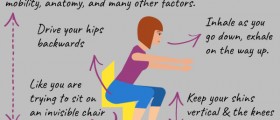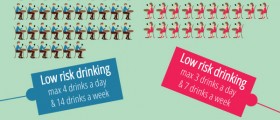
Being underweight and your cycle Good health including a balanced diet and a responsible lifestyle is the basis of a healthy menstrual cycle as well. Both women who are underweight and those who are overweight at at risk of unwelcome changes to the monthly cycle. Menstrual cycle changes after weight loss are very common, and your cycle may be irregular when your Body Mass Index is much too low. Women who are severely underweight are also a lot more likely to be anovulatory than women who have a healthy weight. Stopping ovulation, the release of an egg that can be fertilized, is nature's way to protect you. Starvation and pregnancy don't go together very well.
Gaining weight Underweight can be caused by a wide variety of circumstances. Your low BMI may be due to illness, having an eating disorder, exercising a lot, or just because you naturally tend to be like that. In any case, gaining weight is the best option for women who are underweight and would like to conceive. Gaining weight may not be a simple task at all and of course, consuming more calories through junk foods is a bad idea. That's why you should always talk to your doctor, who can also refer you to a nutritionist. You'll have access to a good diet plan that helps you gain weight in a healthy way. If you have anorexia or bulimia, it's essential to tackle your eating disorder before conceiving, as these disorders are really dangerous for a developing fetus.
What if you do get pregnant while underweight? Underweight pregnant women are quite likely to suffer from some nutritional deficiencies as a result of their eating habits. If you get pregnant, seek prenatal care immediately and ask your doctor for advice. Pregnant women who started their pregnancy with a Body Mass Index that is far too low should gain more weight than average while they are pregnant between 30 and 40 pounds. Once again, a professional dietitian can be really helpful with advice on how to gain the right amount of weight in the best way possible. You should also be taking a good-quality Prenatal vitamin and mineral supplement. Perhaps, your OBGYN will recommend more frequent prenatal appointments to watch out for your baby's weight being too small for gestational age, a sign of undernourishment, can cause a range of medical problems later on. With the right care, the chances are that everything will be just fine!
















Your thoughts on this
Loading...